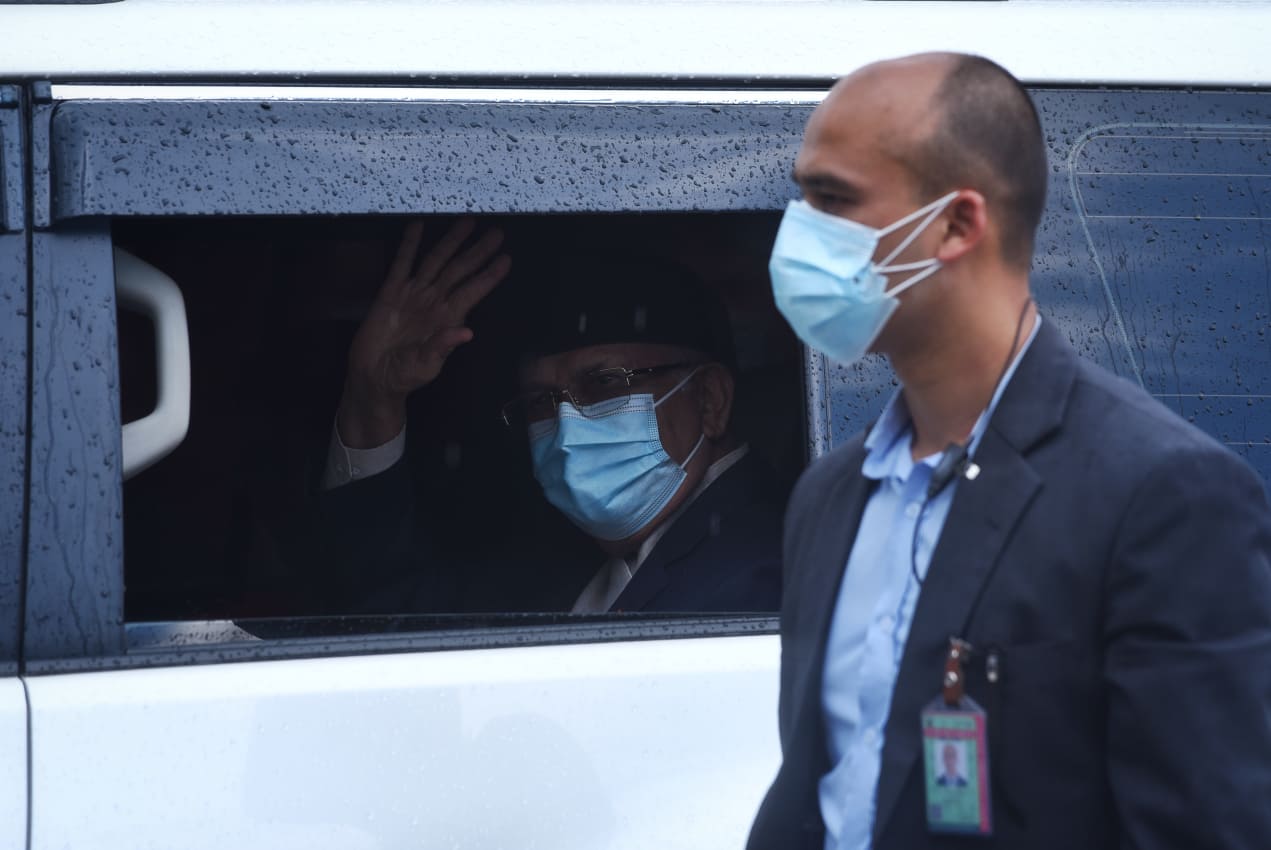Deuba’s long and winding road

On Tuesday, Sher Bahadur Deuba was appointed Nepal’s Prime Minister for the fifth time in 26 years.
The 75-year old veteran of Nepali politics is one of three leaders to have been appointed Prime Minister five times in the country’s political history, joining the ranks of Rastriya Prajatantra Party leader Surya Bahadur Thapa and Nepali Congress monolith Girija Prasad Koirala.
Deuba took over the lead after the Supreme Court ordered him to be appointed as the next Prime Minister and restored the House of Representatives that Prime Minister KP Oli had dissolved for the second time on 22 May.
Deuba first became Prime Minister of a coalition government under similar circumstances, after Prime Minister Manmohan Adhikari, leading a minority government, tried and failed to dissolve parliament in 1995.
Since then, Deuba has been at the helm through key moments in Nepal’s history: during King Birendra's reigh, after King Gyanendra’s coup, in interim governments after the peace accord in 2006, and during the first elections at all three levels of Nepal’s federal government.


But Deuba’s long political career has been mired in uncertainties and controversies.
His political fight to stop KP Oli from dissolving parliament is reminiscent of when Deuba himself dissolved Parliament during his second term in 2002, following which he was removed as Prime Minister by King Gynandera, who branded him incompetent. Deuba was then dismissed from his own party, which led him to found the breakaway Nepali Congress (Democratic).
In 2005, after his third term as Prime Minister and subsequent removal by King Gyanendra, Deuba was arrested and sentenced to two years in prison after the then Royal Commission for Corruption Control (RCCC) claimed to have found him involved in corruption in the $500 million Melamchi drinking water project. He was released after the court ruled the anti-corruption panel unconstitutional.
In 2018, Deuba resigned during his fourth term to make way for KP Oli’s appointment to office. And having succeeded him on Tuesday, Deuba effectively bookended Oli’s terms as Prime Minister.
Deuba’s fifth term was off to a shaky start, with his oath of office on Tuesday having been delayed following a controversy over the initial letter from the Office of the President, which failed to mention the constitutional provision under which he was appointed Prime Minister.
The newly-appointed Prime Minister must now seek a vote of confidence in the House of Representatives within 30 days under Article 76(6) of the Constitution. Deuba will need a simple majority of 136 out of 271 current members in Parliament to pass the floor test and retain office.

In May, Deuba in his attempt to lead the country had the support of 149 lawmakers of the opposition alliance, which included 61 members of his own Nepali Congress, 49 lawmakers from the Maoist Centre, 23 members from the dissident Nepal faction of the UML, and 12 from the Yadav-Bhattarai faction of the JSP.
Now, with Madhav Kumar Nepal, who led the dissident UML faction in support of Deuba’s Prime Ministership bid, withdrawing his support from the opposition alliance, Deuba’s biggest challenge lies in securing a majority in parliament.
If Deuba passes the floor test, he will remain Prime Minister for the remainder of the tenure of the House. If he fails to get a vote of confidence, Deuba will have to make way for and preside over snap elections to be held within the next six months under Article 76 (7) of the Constitution.


For his part, Oli had been trying to patch things up with Nepal before the Supreme Court ruling to try to retain party unity. However, that did not stop the outgoing Prime Minister in his address to the nation on Monday from casting the responsibility of the court’s verdict on the ‘chaotic and undisciplined’ dissident UML signatories who supported Deuba to become Prime Minister.
As it stands, some lawmakers from the Nepal faction have assured that they will still back Deuba in Parliament. “We will definitely vote for him, as we have clearly stated in the writ petition submitted to the apex court,” said UML’s Birodh Khatiwoda.
UML leader Kalyani Khadka also reaffirmed her support for Deuba, saying that the repeated dissolution of the parliament needs to stop.
In fact, UML lawmaker Metmani Chaudhary, urging not to doubt their support of Deuba, went so far as to say, "Not only will the 23 members who signed the writ petition cast their confidence vote [for Sher Bahadur Deuba], other MPs from the UML will as well."
Deuba has inherited leadership in the midst of a pandemic that has claimed the lives of nearly 10,000 Nepalis. And with his political future uncertain, if he manages to hold on to office, the Prime Minister will be faced with securing enough Covid vaccines for Nepal’s eligible population, coordinating disaster response for deadly monsoon floods across the country, and reviving an economy in ruins.
writer
Shristi Karki is a correspondent with Nepali Times. She joined Nepali Times as an intern in 2020, becoming a part of the newsroom full-time after graduating from Kathmandu University School of Arts. Karki has reported on politics, current affairs, art and culture.




